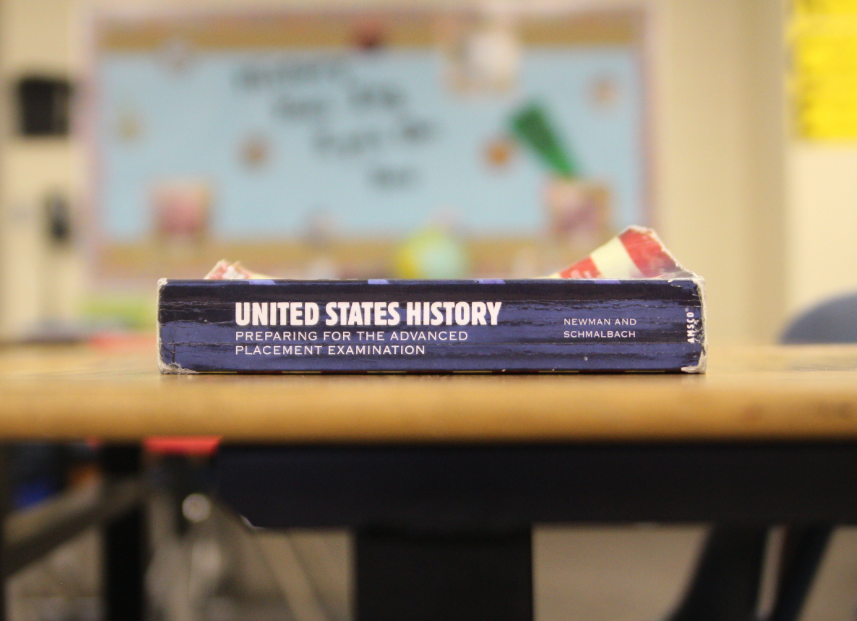Heightened political attention to AP social studies classes highlights their importance
After the College Board received criticism over the introduction of the AP African American Studies curriculum, AP social studies classes can feel an increased political presence.
March 31, 2023
As the College Board faces repeated criticism from Florida Governor Ron DeSantis over the Advanced Placement (AP) African American Studies curriculum, along with the curriculum for other history classes, AP social studies teachers can feel more of a political presence in the classroom.
In South Dakota, the recent debate surrounding the possible shift in social studies standards to give a more glowing perspective on history has only been inflamed by nationwide attention to AP social studies classes. LHS AP US History teacher and Social Studies Department Chair Roxy Harte has felt this outside presence, and it has continued her focus on following the national AP curriculum, while also pushing a deeper understanding of all historical events.
“I think that there is definitely more of an outside focus on what happens in the classroom in general in the last four years, and that includes social studies,” said Harte. “As a teacher of history, I have always been conscientious about what I am teaching my students, that I am following the standards while giving them a rich and robust history education.”
As this outside focus places pressure on teachers, parents and students alike can possess a more unsure mindset surrounding social studies lessons, sparking questions as to why some topics are taught in AP classes. Harte has noticed this development and makes sure that people understand why certain events and perspectives are important to their historical knowledge.
“I sometimes have to preface hard topics with ‘this is why we are learning the hard topics.’ That it is a part of the College Board’s expectations, and that this is how we are going to go about it,” said Harte. “Then, I have to be really conscientious about how I phrase things and work on that phraseology.”
DeSantis has questioned the establishment of the College Board as a whole, proposing the idea of replacing all AP classes in Florida. Given his national influence, this could mean changing the educational landscape of schools nationwide. If the social studies curriculum is changed, Harte fears that there will be even more disagreement surrounding the educational world.
“The more informed we are as citizens about our history, and the history of the world, the more informed we are about the future,” said Harte. “I worry that if certain topics are taken away, there will be gaps in understanding. When there is that gap, it allows for even more controversy. You can have one person from one state have a completely different understanding of an event than from another state.”
Furthermore, Harte acknowledges the deep impact that gapped historical education in both national AP and state standards can produce.
“If national curriculum can be changed, state curriculum can be changed as well,” said Harte. “Having an informed populace is important to the survival of democracy.”
Developed over the last decade, AP African American Studies is now being piloted at 60 schools nationwide. The College Board states that all schools can have the opportunity to offer the class starting in 2024, but they have had to reevaluate some standards following the political spotlight and pushback. Still, Harte sees the course as a way for students to extend their knowledge across various avenues of learning.
“It is an opportunity to offer another class that sometimes doesn’t get talked about in other areas,” said Harte. “I think what is really cool about the AP African American Studies class is that it is more interdisciplinary than people realize. It combines history with English and literature, and that is something that leads to understanding for students rather than having it siloed so much.”
On top of this, AP African American Studies could help solve the nationwide disparity between the diversity of all students and those enrolled in AP classes. 15% of American high schoolers are Black, but they account for just 9% of all AP students. Classes that promote new perspectives could be a huge step towards decreasing the gap in demographics within AP classes that Harte has experienced firsthand.
“We know that the College Board and AP classes don’t reflect the diversity of our schools. I taught in Arizona where 90% of my students outside of my AP class were Hispanic. Inside my AP class, it was about 50%,” said Harte.
There have been repeated barriers for all kinds of students when trying to take AP classes, but, over time, the culture surrounding these barriers has dissipated. The growth of different perspectives in AP social studies classes has grown in response.
“Somebody would play gatekeeper at some schools. Whether it was teachers, counselors or even parents, saying ‘no, that class isn’t for you.’ The big push in the last 10 years has been open access,” said Harte. “If students are willing to do the work and willing to put in the effort, let them in. It is a good experience for students. It also adds to the different voices in our classrooms which are so important.”
Regan Meyer, an AP Human Geography teacher at LHS, has noticed that history education has become more divisive in the world of politics; however, she does not view this debate as a completely new occurrence.
“This isn’t the first time in the history of the world, or our country, that educational topics have become hot-button issues for politicians and activists,” said Meyer. “Honestly, I would argue that social media, globalization and greater access to information is the reason why education is entering the stream of issues debated in political halls.”
Even after the continued scrutiny that AP social studies classes have faced, Meyer still believes in the vitality of AP classes to propel learning forward.
“I think that Advanced Placement courses are important for a variety of reasons. There’s the obvious benefit of having college credit prior to entering a university and the added challenge and prestige of doing well,” said Meyer. “More so, I appreciate how AP courses provide a standardized curriculum that can be translated across cultural, geographical and socioeconomic boundaries. They push students to dig deeper into societal and historical topics.”
In the wake of the ever-changing political attention to social studies education and AP classes, Meyer remains confident that teachers will continue to stand as the guiding light of growth in students’ lives.
“We are educators. We are taught and trained and prepared to educate children so that they can move on to lead successful and rewarding lives,” said Meyer. “It is my hope that no matter what avenue students choose to pursue after school, they do so as conscientious citizens wanting to better the world.”










Daniel Bethke • Mar 31, 2023 at 5:44 pm
Good article as always with great quotes